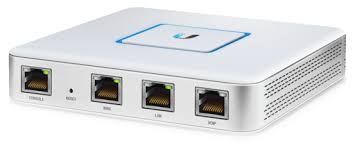USG

Info
RETIRED!
As previously mentioned, my router and access points are Unifi.

I only have a Unifi Security Gateway and don't yet have a Dream Machine or a CloudKey, so I selfhost my controller in Docker. This used to be a simple image but now it utilises a MongoDB database.
Migrating all my data across to the new image with database was fairly simple. I took a full backup of my current setup from within the controllers UI. The controller was shut-down and the new image with database was then installed
Instructions for installation of this have been taken from github:
MongoDB
I setup MongoDB seperately and as advised, I have pinned the version to 4.4.
init-mongo.js
As I have set this up seperately, I created the necessary init script (javascript file) to create my user. This was then attached to the container as a read-only bind mount.
db.getSiblingDB("MONGO_DBNAME").createUser({user: "MONGO_USER", pwd: "MONGO_PASS", roles: [{role: "dbOwner", db: "MONGO_DBNAME"}]});
docker-compose.yml
networks:
default:
name: cuthbert-network
external: true
services:
mongodb:
image: docker.io/mongo:4.4
container_name: mongodb
networks:
default:
ipv4_address: "172.22.0.3"
volumes:
- /home/xander/appdata/mongodb/data/db:/data/db
- /home/xander/appdata/mongodb/init-mongo.js:/docker-entrypoint-initdb.d/init-mongo.js:ro
restart: unless-stopped
healthcheck:
test: echo 'db.runCommand("ping").ok' | mongo localhost:27017/test --quiet
interval: 10s
timeout: 10s
retries: 5
start_period: 40s
unifi-network-application
docker-compose.yml
networks:
default:
name: cuthbert-network
external: true
services:
unifi-controller:
image: lscr.io/linuxserver/unifi-network-application:latest
container_name: unifi-network-application
networks:
default:
ipv4_address: "172.22.0.2"
environment:
- PUID=1000
- PGID=1000
- TZ=Europe/London
- MONGO_USER=<username specified in init.js>
- MONGO_PASS=<password specified in init.js>
- MONGO_HOST=<mongodb container name>
- MONGO_PORT=27017 #mongodb port
- MONGO_DBNAME=<dbname specified in init.js>
restart: unless-stopped
ports:
- 8443:8443
- 8080:8080
- 10001:10001/udp
- 3478:3478/udp
volumes:
- /home/xander/appdata/unifi:/config
Dynamic File
As this is running on a seperate host to where Traefik is running, I have created a Dynamic file to have it routed through Traefik and with SSL.
That Dynamic file can be located here
Info
This file no longer exists and has been replaced with Unifi UCG
Once installed, I was then able to navigate to the DNS name I have specified.
It is here where I am then able to restore the backup that I previously captured.
Device Adoption
To be able to adopt other devices like an access point, the inform URL within the controller needs to be changed to something the device is able to see. By default, it will be set to the Docker network IP Address and a device on the outside, won't be able to see this.
To do this within the controller, you need to navigate to:
settings > system > advanced
About half way down the page you will see the following option (ensure you set the address to the docker host (IP or Domain will work)) and tick the box to "Override"

You can also manually adopt a device via SSH
The default password for a Unifi Access Point will be ubntOnce connected, run the following command to allow the controller to adobt the device:
This should then appear within your list of devices
